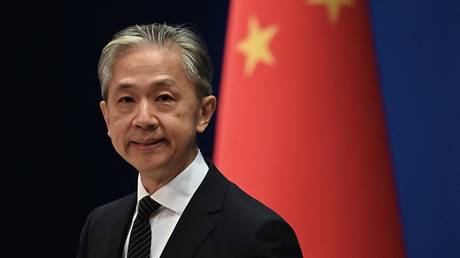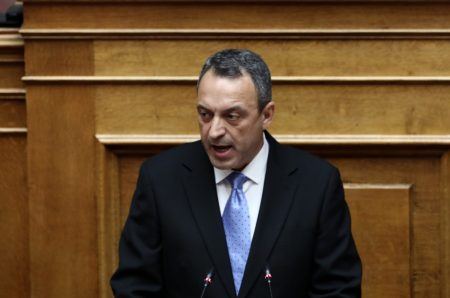
I’m not Greek but this article is a disgrace and probably the most insulting and racist and stereotypical comment I have ever heard.
Is it possible for the entire population of Greece to file a civil suit against Lagarde for libel and slander because of the damage her comments do to the reputation of the country?
This article in the Guardian (full article below) exposes the mentality, ignorance, incompetence and racism of the IMF.
I don’t want to read the article again because it upsets me but to spread the word I will.
Christine Lagarde, said she has more sympathy for children deprived of decent schooling in sub-Saharan Africa than for many of those facing poverty in Athens.
Okay, in that case, why does she not quit her job and go and work for the international Red Cross if that is where her priorities lie.
If she is more interested in Africa than Europe, why is she devoting so much of her time to Europe. Shouldn’t she be focussing more on Africa if this is what she is more concerned with?
Unless of course she thinks Greeks should be punished and she wants to be the enforcer.
Using some of the bluntest language of the two-and-a-half-year debt crisis, she says Greek parents have to take responsibility if their children are being affected by spending cuts. “Parents have to pay their tax,” she says.
This statement exposes her complete and utter lack of understanding of the Greek government crisis.

I have said it before and I will say it again.
Tax evasion/avoidance has not caused the problems Greece is currently experiencing. If anything and if the problem is as bad as the media and politicians say, then not payment of taxes is what has allowed Greece to be so healthy given the simply massive depression the country is being exposed to.
If the UK economy shrunk by 20% I am positive there would have been a complete breakdown. No way the UK could handle such a massive contraction.
Anyway, back to the point. Assuming tax evasion is as bad as claimed, which I do not believe it is.
Tax evasion is not a new phenomenon, it has gone on since day dot and it has been entirely forecastable.
The problems in Greece are 100% down to budgeting failures of central government. Nothing else.
“Do you know what? As far as Athens is concerned, I also think about all those people who are trying to escape tax all the time. All these people in Greece who are trying to escape tax.”
So there you have it. Lagarde believes “all these Greeks” and thieves and criminals.
Not only is she incompetent, she has zero appreciation of psychology. People are a product and respond to their environment.
How can government on the one hand say they have all the answers and yet at the same time they have nothing to do with the current problems? It’s an absurd assertion but it is one Lagarde agrees with.
To not ask the question as to why Greeks behave the way she alleges is a shallow analysis at best.
it is now payback time, she responds: “That’s right.”
Sorry, what? It’s payback time for Greece? What all Greeks should be punished for the excess of government? Why isn’t the government and the banks that made the foolish loans the ones getting punished?
Signs emerged of a widening gulf between Germany and France over whether common eurobonds should be issued to help those countries, such as Greece and Spain, with high interest rates on their debt.
And just so Greeks know, Germany is on their side. Germany says Greece should not have to go into more debt but the country should grow out of the recession.
And again, you have Germany going against the IMF, Sarkozy, France and the World Bank
Jürgen Fitschen, joint head of Germany’s biggest bank, Deutsche, described Greece as “a failed state … a corrupt state”. Separately, however, there were reports suggesting that the chancellor, Angela Merkel, was dusting down the economic modernisation plan used to revive East Germany after the fall of communism in the belief that similar measures could be applied to Greece and other struggling eurozone countries. Today’s Der Spiegel magazine says Merkel will present a six-point plan based on the East German blueprint as a growth strategy. It includes measures such as privatisation, looser employment law and lower tax rates.
Amen to that, surely all Greeks must agree with Germany?
And to highlight the propaganda and false perspective put out by the mainstream media, and to highlight the mistake that Greeks are making if they believe France, the IMF, World Bank and Germany are working together.
Lagarde, the IMF, Sarkozy (when he was in power) and France’s position are diametrically opposed to Germany’s.
Given that, here is the propaganda
Opinion polls are pointing to a close race between parties backing and opposing the terms of Greece’s €130bn bailout, but neither Germany nor the IMF has demonstrated any willingness to water down Greece’s austerity programme.
And this is typical. The constant vilification of Germany in the mainstream media by associating Germany with the IMF, when it’s views are completely different.
And the constant vilification of Germany in the media because Germany does not want increases the debt of Greece.
And the final piece of her article
it’s the mission of the fund, and it’s my job to say the truth, whoever it is across the table. And I tell you something: it’s sometimes harder to tell the government of low-income countries, where people live on $3,000, $4,000 or $5,000 per capita per year, to actually strengthen the budget and reduce the deficit. Because I know what it means in terms of welfare programmes and support for the poor. It has much bigger ramifications.”
In case you did not know Lagarde was a socialist.
But let us look at her comment in more detail than she analyses the psychology of the Greek people.
She claims it is hard to tell government to spend less.
But is it really. How would she even know?
She says it is difficult to impose austerity on Greece but she has no sympathy.
If it is difficult why does she not make her job easier?
Why does sho not advocate giving Greeks a choice.
Why does show not advocate this.
That the Greek government should adopt a model of voluntary taxation.
If Greek decides they do not want to receive any benefits from government then they should be relived of all their obligations to pay tax to the government and relieved of any government regulation that is supposed to protect them. That way Lagarde can pass responsibility onto the people.
The truth is she does not want to give people the choice. She wants people to be forced to pay tax regardless of whether those same people believe it is in their own interest or not.
Larry Elliott and Decca Aitkenhead
guardian.co.uk, Friday 25 May 2012 20.04 BST
Comments (1402)
The IMF has no intention of softening the terms of Greece’s austerity package, says Christine Lagarde. Photograph: Emmanuel Fradin for the Guardian
The International Monetary Fund has ratcheted up the pressure on crisis-hit Greece after its managing director, Christine Lagarde, said she has more sympathy for children deprived of decent schooling in sub-Saharan Africa than for many of those facing poverty in Athens.
In an uncompromising interview with the Guardian, Lagarde insists it is payback time for Greece and makes it clear that the IMF has no intention of softening the terms of the country’s austerity package.
Using some of the bluntest language of the two-and-a-half-year debt crisis, she says Greek parents have to take responsibility if their children are being affected by spending cuts. “Parents have to pay their tax,” she says.
Greece, which has seen its economy shrink by a fifth since the recession began, has been told to cut wages, pensions and public spending in return for financial help from the IMF, the European Union and the European Central Bank.
Asked whether she is able to block out of her mind the mothers unable to get access to midwives or patients unable to obtain life-saving drugs, Lagarde replies: “I think more of the little kids from a school in a little village in Niger who get teaching two hours a day, sharing one chair for three of them, and who are very keen to get an education. I have them in my mind all the time. Because I think they need even more help than the people in Athens.”
Lagarde, predicting that the debt crisis has yet to run its course, adds: “Do you know what? As far as Athens is concerned, I also think about all those people who are trying to escape tax all the time. All these people in Greece who are trying to escape tax.” She says she thinks “equally” about Greeks deprived of public services and Greek citizens not paying their tax.
“I think they should also help themselves collectively.” Asked how, she replies: “By all paying their tax.”
Asked if she is essentially saying to the Greeks and others in Europe that they have had a nice time and it is now payback time, she responds: “That’s right.”
The intervention by Lagarde comes after the caretaker Greek government met to discuss a sharp fall in tax revenues – down by a third in a year. Under the terms of the country’s bailout, Athens has agreed to improve Greece’s poor record for tax collection in order to reduce its budget deficit, and Lagarde’s remarks are evidence of a growing impatience in the international community. Reports surfaced in Germany and France of preparations being made to cope with Greece’s possible departure from the single currency after its election on 17 June.
Belgium’s deputy prime minister, Didier Reynders, said it would be a “serious professional error” if central banks and companies did not prepare for an exit.
The euro came under fresh attack on the foreign exchanges, dropping below €1.25 at one point on Friday, as the Spanish government was in talks to pump up to €19bn of rescue finance into Bankia, one of the country’s biggest banks, and the Catalan regional government sought financial help from Madrid to deal with its debts.
Signs emerged of a widening gulf between Germany and France over whether common eurobonds should be issued to help those countries, such as Greece and Spain, with high interest rates on their debt.
Jens Weidmann, president of the Bundesbank, poured cold water on the idea – which is strongly backed by the French president, François Hollande – and also said financial aid to Greece should be cut off if it failed to keep to the bailout deal.
Jürgen Fitschen, joint head of Germany’s biggest bank, Deutsche, described Greece as “a failed state … a corrupt state”. Separately, however, there were reports suggesting that the chancellor, Angela Merkel, was dusting down the economic modernisation plan used to revive East Germany after the fall of communism in the belief that similar measures could be applied to Greece and other struggling eurozone countries. Today’s Der Spiegel magazine says Merkel will present a six-point plan based on the East German blueprint as a growth strategy. It includes measures such as privatisation, looser employment law and lower tax rates.
Opinion polls are pointing to a close race between parties backing and opposing the terms of Greece’s €130bn bailout, but neither Germany nor the IMF has demonstrated any willingness to water down Greece’s austerity programme.
In her interview Lagarde says Greece is not getting softer treatment than a poor country in the developing world, and that the IMF does not find it harder to impose strong conditions on a rich nation.
“No, it’s not harder. No. Because it’s the mission of the fund, and it’s my job to say the truth, whoever it is across the table. And I tell you something: it’s sometimes harder to tell the government of low-income countries, where people live on $3,000, $4,000 or $5,000 per capita per year, to actually strengthen the budget and reduce the deficit. Because I know what it means in terms of welfare programmes and support for the poor. It has much bigger ramifications.”







You prove how stupid you are by statements such as “The problems in Greece are 100% down to budgeting failures of central government. Nothing else.” You really think it is that simple? The fundamental problem in Greece is the Greek culture of corruption, incompetence, and sense of entitlement and right to other countries’ (taxpayers’) hard earned money.
But I have to admit It is so much fun to watch Greeks suffer and complain and see the whole country go down the toilet where it belongs. They do not have the DNA to live ethically. Ha ha ha ha ha ha and now they fall.
I fail to see how government overspending has anything to do with the private sector. The Greek government believe they know how much they lose to corruption/tax avoidance etc yet they continued to spend more than they took in by a huge margin. That is the problem.
About money from other countries. Bailouts are not doing Greeks any favours or taxpayers in other countries
I’m not sure why you are prejudiced against the Greeks
“Christine Lagarde, said she has more sympathy for children deprived of decent schooling in sub-Saharan Africa than for many of those facing poverty in Athens.”
Ok then I should give my money to the children in Africa instead of giving it to the banks and the IMF.
“Jürgen Fitschen, joint head of Germany’s biggest bank, Deutsche, described Greece as “a failed state … a corrupt state”. Separately, however, there were reports suggesting that the chancellor, Angela Merkel, was dusting down the economic modernisation plan used to revive East Germany after the fall of communism in the belief that similar measures could be applied to Greece and other struggling eurozone countries. Today’s Der Spiegel magazine says Merkel will present a six-point plan based on the East German blueprint as a growth strategy. It includes measures such as privatisation, looser employment law and lower tax rates.
Amen to that, surely all Greeks must agree with Germany?”
Yes, amen to that! “Privatisation, looser employment law* and lower tax rates**” is precisely how things work in Niger. What is the plan exactly? Turning Greece into Africa just to gain Lagarde’s sympathy?
*sounds great from an employer’s point of view, the workers won’t like it much though
**This of course only applies to businesses and never to households. My experience with the “adjustment program” is that taxes have increased fivefold except for people like the ship-owners who go almost completely untaxed.
If you believe in free market then you should wholeheartedly support the abolition of the EU or at least ending things such as the “common agricultural policy”. All that these treaties are doing is applying selective protectionism to make German or Dutch products antagonistic within the EU while offering no such protection to the products of the inferior, lazy, corrupt, filthy, peripheral countries(livingly known as PIGS). For example Greeks are almost forced to import their meat from the Netherlands instead of buying it from Argentina that would be much cheaper(and much healthier I may add). Personally, I don’t believe in the power of the “invisible hand” but I think even free-marketers should be 100% opposed to the EU if they are honest with themselves.
Of course, the other great advantage of leaving the EU is finally getting rid of assholes like Erik.
I’m sorry, I meant lovingly not “livinly”